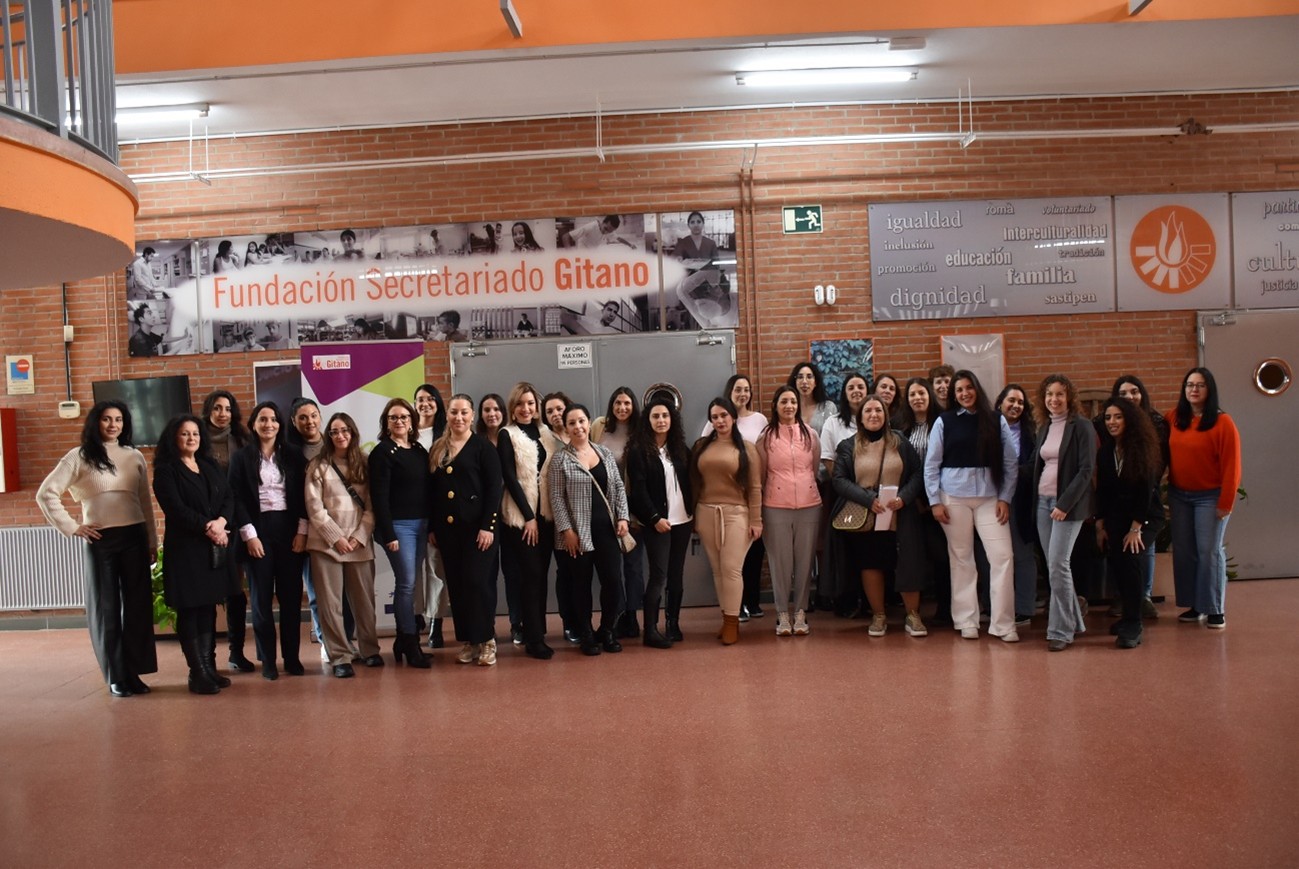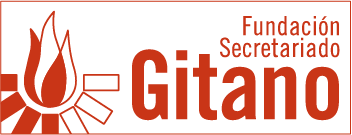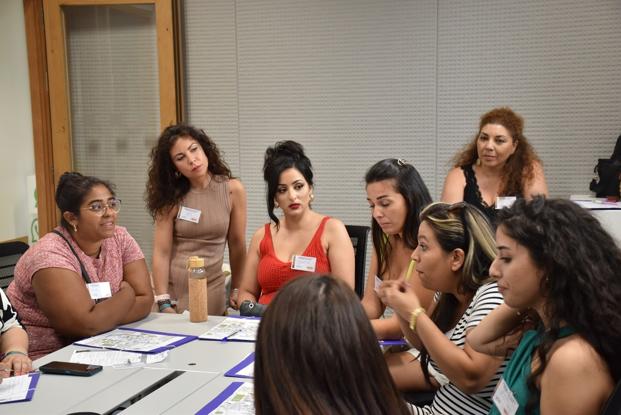Calí Programme [editar]
This programme addresses the specific needs of Roma women based on an understanding of their own reality, promoting their personal development so that they can fully exercise their citizenship, as well as their pre-employment skills and competences to facilitate access to employment, their digital skills and achieve the empowerment and emancipation they seek.
In order to achieve equal opportunities for Roma women, it is necessary to work with society as a whole to raise awareness of gender inequality and the multiple forms of discrimination that Roma women face in their lives. For this reason, the Calí Programme for the Equality of Roma Women works not only with Roma women, but also with the Roma community, institutions and key actors. In this way, society as a whole is involved in achieving a more egalitarian society with equal access to goods, services and rights.

Areas of work
It was launched in 2016 and has been renewed until 2029. It is funded by the European Social Fund Plus, the Ministry of Social Rights, Consumer Affairs and 2030 Agenda, the Ministry of Labour and Social Economy, and the ‘la Caixa’ Foundation, among other co-funders.
The Calí Programme works from an individualised, intercultural and intersectional perspective and through personalised pathways, incorporating group and community work with men and women of all ages to promote equal opportunities and gender equality within and outside the Roma community.
Objectives:
- To improve the disadvantaged situation of Roma women in terms of their socio-economic inclusion, promoting personalised pathways that improve their digital skills, employability and activation for job search, so as to overcome the difficulties that prevent them from accessing the labour market and exercising their citizenship on equal terms.
- To promote gender equality between Roma men and women and to break down the cultural and social barriers that affect women in their socio-occupational advancement.
- To assist Roma women who suffer from gender-based violence or harassment, so that they can escape their situation and have access to specialised resources with support processes adapted to their circumstances.
- Raise awareness among society in general, the Roma community itself and public and private resources about the stereotypical social image of the Roma community, and especially of Roma women, in order to eliminate prejudices and stereotypes that prevent their full participation in the economic, social and labour spheres
- Influence policies and systems related to equal opportunities, gender equality and intersectionality so that the specific nature of Roma women is incorporated across the board.
Lines of action of the Calí Programme for the equality of Roma women
- Pathways for the development of social and personal skills and employability, which seek the social and labour inclusion of participants, their active citizenship, including digital citizenship, and their empowerment in relation to intersectional gender equality.
- Support service for Roma women who are victims of gender-based violence or at risk of suffering it.
- Awareness-raising actions with men and women to promote gender equality, shared responsibility, work-life balance, and the fight against gender-based violence and all types of harassment.
- Cross-cutting social awareness-raising actions with political impact to promote comprehensive, intersectional and intercultural care for Roma women through public policies, including awareness-raising and training for professionals and key agents.

Evaluation of the results and impact of the Calí Programme
In 2024, the Evaluation of Results and Impact of the Calí Programme for the Equality of Roma Women was presented, demonstrating that the programme has a positive impact on participants. The study reveals that the programme has a significant impact on participating women and that they express an overall satisfaction rate of 92.5%.
- 4 676 women participated in social and labour market inclusion pathways
- 704 women found employment
- 279 resumed formal studies
- 392 women received assistance in situations of gender-based violence
- 2 736 awareness-raising activities on gender equality, work-life balance and shared responsibility, and prevention of gender-based violence, in which a total of 26 631 people participated, including 9 422 Roma men and 17 209 Roma women of all ages


